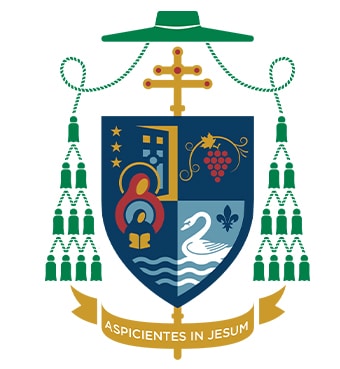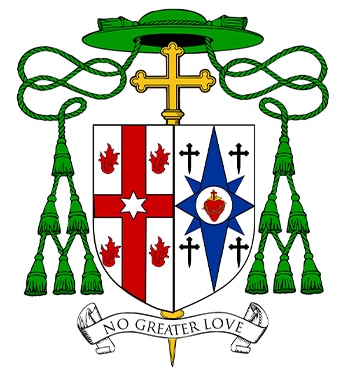Trump vs. Clinton III — A Shift in Focus

The third and final presidential debate of the 2016 election brought much of the same rhetoric and nasty tone that has characterized the previous two depressing encounters between Democrat nominee Hillary Clinton and Republican nominee Donald Trump, but this was substantially different by at long last shifting the focus in many ways away from Trump to Clinton.
For more than a year and a half, the media’s focus has been on the billionaire businessman. This has not been a surprise, as Trump has made himself the center of his campaign and the media found him both profitable and damaging to the GOP brand. But for the first time in the debates — some might argue in the entire campaign — the Democrat nominee tangled not just with her rival Trump, but with a moderator determined to be fair. Chris Wallace of Fox News demonstrated a capacity to maintain tight control over the proceedings and pressed both candidates on the issues that neither candidate wants to address. In Trump’s case, Wallace went head on into the accusations against him of sexual abuse of women and Trump’s allegedly vulgar and predatory behavior.
Clinton, meanwhile, was pressed vigorously to defend her record as secretary of state, her problems of untrustworthiness, the accusations of “pay for play” on the part of the Clinton Foundation during her tenure at the State Department and above all her undeniably liberal, even radical, positions on abortion.
The American public endured a second presidential debate a few weeks ago completely overshadowed by the charges of Trump’s behavior. By the third debate, the back-and-forth — characteristically acrimonious and filled with countercharges against former President Bill Clinton — had essentially run its course. Opinions and views on the matter are now set, and the damage to Trump has been done.
Clinton has profited immensely throughout the presidential primary for the Democrats, and since clinching her party’s nomination, by allowing the media glare to be on Trump. It proved briefly calamitous to her campaign in the weeks leading up to the first debate, as Trump positioned himself for a serious run for the White House. Then came the allegations, and Clinton was able to slip beneath the radar again.
In the third debate, she ran into a moderator who was willing to stand up to both candidates.
The timing was for once poor for the Clinton campaign. Heading into the debate, there was a continued drumbeat of revelations by WikiLeaks and the apparent disclosure that the violence at Trump’s campaign events may have been orchestrated by Democrat operatives. The result of this was to mark a kind of forensic shift from the first two debates. Clinton was on the defensive for a good part of the evening, as she was forced by Wallace — and almost incidentally by Trump — to respond to substantive allegations. The result was tough going for her in several spots, especially about the Clinton Foundation.
Trump was helped, in that he gave his best performance of the three debates. He remained mostly under self-control, projected an air of calm and was consistently better prepared on policy issues. Significantly, he was at last aware of the traps and rabbit holes that had distracted him throughout the first debate, and he largely avoided them.
But he also missed numerous opportunities to press home the attack in response to some of Clinton’s comments on Syria, the economy and national security. Such has been the lament of his supporters since the start of the debates.
In the vice-presidential debate, Trump’s running mate, Gov. Mike Pence, was an articulate, clear and passionate defender not just of the pro-life position, but of the whole culture of life. It was a memorable instant in American politics.
Trump has pledged himself to be faithful to his own pro-life commitments. To his credit, he spoke about life and reiterated his pledge to fight the scourge of abortion. What he lacked was Pence’s ease and strength of conviction, born out of years in the trenches fighting to defend the unborn.
As it was, however, Trump needed to do very little on his own part to draw a razor-sharp contrast with Clinton. Wallace and Clinton did the actual work. The moderator approached key constitutional issues facing the country and the next president, including the Second Amendment, immigration and abortion. Clinton, unsurprisingly, declared her utter commitment to abortion, Roe v. Wade and Planned Parenthood. The latter is a federally supported organization that just pledged $30 million to her cause and that Clinton hailed just a few days ago when it celebrated its 100th anniversary and its role in causing 70 million abortions sine theRoe v. Wade decision in 1973.
As horrifying as that might be to pro-life supporters, Clinton went a step further in the debate by supporting even late-term abortions.
She tried to explain her endorsement of a practice that has long been viewed as extreme and grotesque even to some supporters of abortion by cloaking it in terms of the mother’s health, but Trump called it what it is.
“In the ninth month, you can take the baby and rip the baby out of the womb of the mother just prior to the birth of the baby,” Trump said. “Now, you can say that that’s okay. And Hillary can say that that’s okay — but it’s not okay with me.”
In the vice-presidential debate, her running mate, Sen. Tim Kaine, a Catholic, was trampled by Pence on the life issue when he tried to repeat the cliché of being personally opposed to abortion but supportive of it as a matter of public policy. In the third debate, Clinton displayed how Kaine’s 100% approval rating from NARAL and other pro-abortion groups pales utterly compared to her. Clinton’s open endorsement of abortion to the moment of birth was harrowing for people of conscience.
For Catholics, it also represented just how committed the Democrat ticket is to unfettered access to abortion. Consider the statement issued by the U.S. bishops all the way back in 1996, “Stand Up for Life,” after President Bill Clinton’s veto of the first “Partial-Birth Abortion Ban Act.” The bishops called the practice “a particularly heinous and violent way of killing an infant during the process of birth.”
How important this all might prove is difficult to assess in the immediate aftermath of the debate. The media attention will be on Trump’s refusal to state categorically that he would accept the results of the election, a decision made all the more explosive by his various references to the election being “rigged.”
That is already the headline of the debate for virtually every secular media organization. For those paying attention and committed to the cause of life, though, Clinton’s night was just as memorable as Pence’s debate performance weeks ago in Farmville, Virginia. Only Clinton’s is seared into the memory for very different reasons.
Three weeks remain in one of the ugliest presidential campaigns in American history. Much can still happen, especially if Trump builds on his performance and can get out of his own way. At least for one night, Clinton was forced to reveal before a national audience both what she thinks about abortion in all of its forms and what can be expected from a Clinton administration.
via National Catholic Register
Further reading: A Tale of Two Debates







